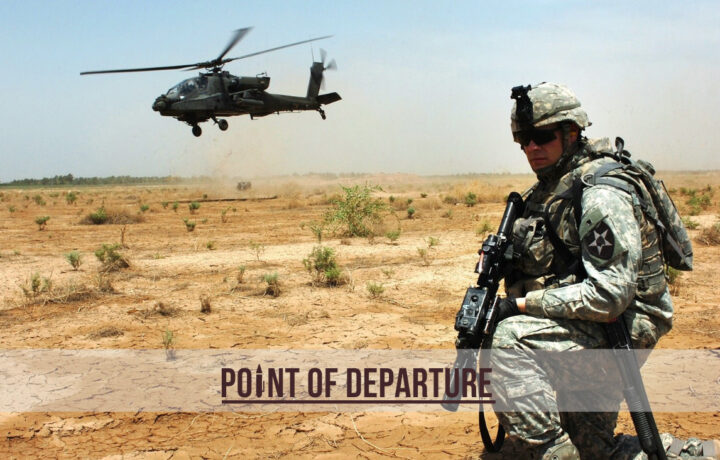“In the Army, we do more before 9:00 a.m. than most people do all day.” – U.S. Army Recruiting Commercial, 1981
On January 1, 1981, I was watching Michigan stretch out a lead over Washington in the Rose Bowl when a commercial aired that would resonate with me to this day. Its message was remarkably simple at a time when the Army was already struggling to find qualified recruits to join the ranks: Be all you can be. That message was so powerful, in fact, that it remained the Army’s primary campaign slogan for an unprecedented 20 years.
Don’t let anyone else tell you who you are or what you can achieve. Define your own success. Be all you can be.
A Tradition of Service
Military service is a unique individual commitment often fueled by personal motivations. In my own family, we can trace our military service to a time before the American Revolution. While every generation was represented in some form or another, the reasons for their service varied significantly. My own decision to serve may have been inspired by a desire to be all I could be, but my father – who enlisted during the Korean War – was my exemplar. He used his veteran benefits to become the first college graduate in our family, something that provided social mobility that evaded previous generations.
The same holds true for many other families, too, where a tradition of military service is the norm. In a 2022 interview, Laneisha Cox, a recent high school graduate pursuing a military career in public affairs, explained how her mother – an Army noncommissioned officer – influenced her decision: “I really didn’t know where to go, and she set me on the right path to go somewhere… Plus, family legacy.”
In fact, according to recent U.S. Army Recruiting Command data, 79% of current recruits have a relative who served. In a 2022 report, the Pew Research Center, which maintains data on the familial connections of servicemembers, revealed that 60% of veterans under the age of 40 have an immediate family member who served and, among new recruits, 30% have a parent in the military. “That’s an especially striking number considering fewer than 1% of Americans have any military service time.”
The military, it seems, is a family business.
The Hidden Value of Military Service
Family connections aside, military service offers a long list of both intrinsic and extrinsic benefits. Some people pursue a sense of duty or honor, seeking to become a part of something bigger than themselves. Whether you’re listening to Toby Keith or Lee Greenwood, the appeal of Old Glory is still a strong influence for many. Other people pursue more tangible motivations, including career training, health care, financial security, and veterans benefits like the post-9/11 GI Bill. And some people pursue military service just to find “the right path to go somewhere” in life.
As the adage goes, the juice is worth the squeeze.
But there are many benefits to military service that extend beyond the typical reasons listed. Benefits that you might not find listed on a pamphlet or see in an advertisement. Benefits that you often don’t appreciate until you can see them in the rearview mirror.
1. The Belonging.
This is more than just being part of something bigger than yourself, it’s identifying as a member of a team. The minute you strap on that uniform, you’re a part of something unique, something that fewer than 1% of Americans experience.
2. The Adventure.
At around the same time the Army ran the “Be All You Can Be” campaign, the Navy advertised, “It’s not just a job. It’s an adventure.” In the military, you’ll go places, do things, and see things that other people only read about in books or see in movies. It might not all be positive, but it is an adventure.
3. The Roaming.
Military life is transitory. Over the course of my career, we moved 16 times in 28 years. Every house we occupied came with its own memories, its own stories, and its own challenges. But home wasn’t a place; it was our family. And because of all that roaming, our family was that much stronger and closer.
4. The Experiences.
Military service is rooted in experiential learning. A lot of it. You’ll attend the occasional school, but experience is the coin of the realm, and that generally means changing jobs every couple of years. Not only does that keep you from becoming complacent – or bored – it ensures that you leave service with an incredible amount of work experience to draw on for a second career.
5. The Camaraderie.
A military career is filled with Kodak moments, memories of friends past and present from every conceivable corner of the globe, born of the camaraderie of shared service… or misery. That camaraderie transcends belonging and forges a bond that endures long after someone’s time in service comes to an end. Attend a unit reunion – especially one of combat veterans – and the camaraderie is palpable.
Recently, I came across a video of a servicemember sharing their reasons for enlisting. It wasn’t about honor or duty that inspired them, but the opportunity to gain educational benefits and work experience that could translate to social mobility. Someone posted the video and proceeded to verbally sandblast the servicemember. The military needed people committed to duty, honor, and country; there was no place for someone pursuing service for other benefits.
Of course, the person who posted it – and most of his commentors – had no military service. So much for duty, honor, and country, I guess.




